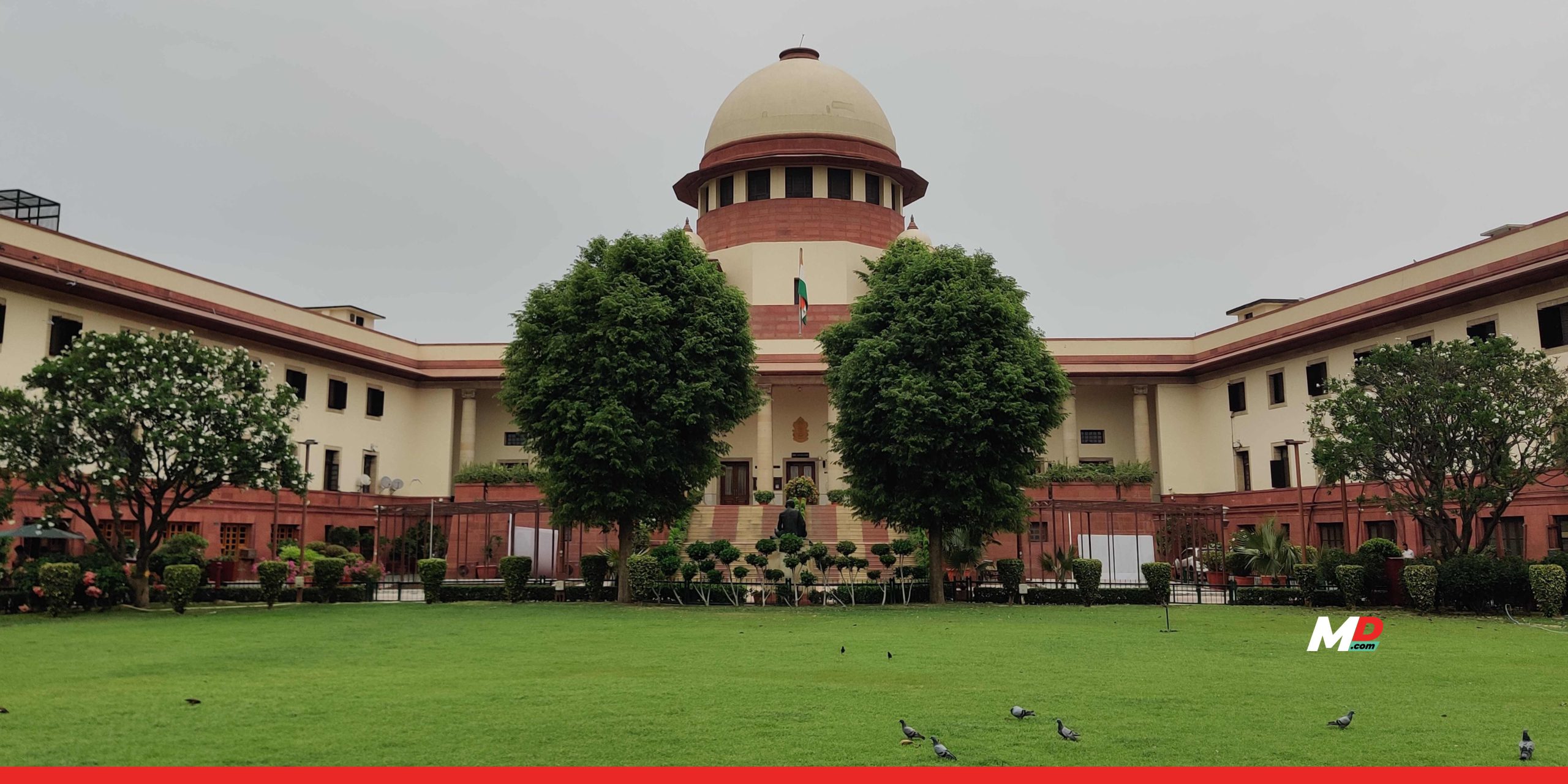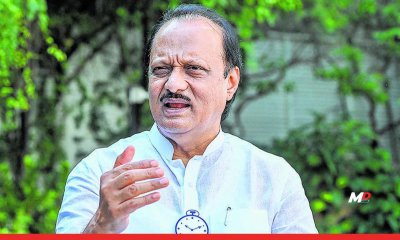Explainer
“We need answers”: Supreme Court hauls up NTA over NEET results
Published
2 years agoon

It was a day of high drama and tension in the world of medical education as the Supreme Court of India stepped into the fray, summoning the National Testing Agency (NTA) to answer for the alleged irregularities that have plagued the latest iteration of the National Eligibility cum Entrance Test (NEET) for undergraduate admissions.
The prestigious exam, which serves as the gateway to coveted MBBS, BDS, and AYUSH programs across the country, had been rocked by a series of shocking revelations – from claims of question paper leaks to concerns over “grace marks” being awarded for a faulty textbook answer.
The esteemed judicial bench, comprising Justices Vikram Nath and Ahsanuddin Amanullah, wasted no time in making their displeasure known. With a firm hand, they made it clear that the “sanctity” of the exam had been “affected” and demanded answers from the NTA, the government agency tasked with conducting this crucial test. The stage is set for a showdown that will test the very foundations of India’s medical education system.
The allegations and the outcry
The controversy first erupted when a group of aspiring medical students, led by Shivangi Mishra, approached the Supreme Court with a plea that sent shockwaves through the academic community. Their central allegation? That the NEET-UG 2024 exam had been plagued by a series of malpractices, including the alleged leak of question papers.
The petitioners argued that this breach of security had given an “undue advantage” to some candidates over others, violating the fundamental right to equality enshrined in the Constitution. They contended that the sanctity of the exam had been irrevocably tarnished, and that the only way to restore justice was to order a fresh round of the NEET-UG examination.
The outcry was swift and widespread. Anxious parents and students, their dreams of a medical career hanging in the balance, joined the chorus, demanding that the Supreme Court take immediate action to address the perceived injustice. The reverberations were felt across the nation, as the integrity of one of India’s most prestigious entrance tests came under intense scrutiny.
The Supreme Court’s response
As the allegations gained traction, the Supreme Court wasted no time in summoning the NTA to answer for the alleged irregularities. In a terse and uncompromising tone, the bench led by Justices Nath and Amanullah made it clear that they would not simply rubber-stamp the NTA’s actions.
“It’s not so simple that because you have done it (conducted the exam), it’s sacrosanct,” Justice Amanullah pointedly remarked to the NTA counsel. “We need answers for that…The sanctity has been affected. So we need answers.”
The court’s message was unmistakable: the NTA would have to provide a comprehensive and convincing explanation for the alleged breaches of security and integrity that had tarnished the NEET-UG 2024 exam. The stakes were high, as the very credibility of the nation’s medical education system hung in the balance.
Refusal to stay the counselling process
Despite the gravity of the situation, the Supreme Court bench took a measured approach, refusing to stay the counselling process for the successful candidates. The justices recognized the need to balance the interests of the students who had already cleared the exam with the concerns raised by the petitioners.
“Let the counselling start. We are not stopping the counselling,” Justice Nath asserted, even as the petitioners’ counsel, Mathews J Nedumpara, urged the court to halt the process.
This decision demonstrated the court’s commitment to ensuring that the dreams of those who had legitimately earned their place in the medical colleges were not jeopardized. However, the bench also made it clear that the NTA would have to provide a satisfactory explanation for the alleged irregularities, setting the stage for a crucial showdown.
Tagging the petition with a pending case
In a move that underscored the seriousness of the matter, the Supreme Court bench decided to tag the fresh petition filed by the students with an existing case on the same issue. This case, which was already scheduled to be heard by a bench led by the Chief Justice of India, D.Y. Chandrachud, on July 8th, would now include the new petition as well.
By consolidating the cases, the court ensured that the NEET-UG 2024 controversy would receive the highest level of judicial scrutiny. The decision also signaled the court’s determination to get to the bottom of the allegations and take decisive action to uphold the integrity of the medical entrance exam.
The textbook controversy: A troubling revelation
As the NEET-UG 2024 saga unfolded, another bombshell revelation further fueled the growing sense of unease. The Indian Express reported that out of the 67 top scorers in the exam, a staggering 44 had gotten a basic Physics question wrong – but were still awarded “grace marks” due to an error in an older version of the NCERT Class 12 textbook.
This troubling discovery highlighted the potential pitfalls of relying on outdated or inaccurate educational materials, and the cascading impact it could have on the fairness and credibility of a high-stakes examination like the NEET-UG. More than 13,000 candidates had challenged the NTA’s answer key, citing the discrepancy in the textbook information – a testament to the widespread concern over the integrity of the exam.
The court’s commitment to restoring trust
As the NEET-UG 2024 controversy continued to make headlines, the Supreme Court’s unwavering commitment to restoring trust in the medical entrance exam became increasingly evident. The bench, led by Justices Nath and Amanullah, made it clear that they would not shy away from taking decisive action if the NTA failed to provide satisfactory answers.
“We need answers for that…The sanctity has been affected. So we need answers,” Justice Amanullah firmly stated, underscoring the court’s determination to get to the bottom of the alleged irregularities.
The court’s refusal to simply rubber-stamp the NTA’s actions, coupled with its decision to consolidate the petitions and fast-track the hearing, sent a strong message: the judiciary was prepared to wield its considerable influence to safeguard the integrity of India’s medical education system.
The tug-of-war Between fairness and practicality
As the Supreme Court deliberated on the NEET-UG 2024 controversy, it finds itself navigating a delicate balance between the competing demands of fairness and practicality. On one hand, the court recognized the gravity of the allegations and the need to uphold the integrity of the exam. On the other, it acknowledged the potential disruption that a complete cancellation and re-examination could have on the lives of the students who have already cleared the test.
This tug-of-war between principles and pragmatism was evident in the court’s decision to refuse a stay on the counselling process for successful candidates. The justices understood the importance of safeguarding the interests of those who had legitimately earned their place in the medical colleges, even as they demanded answers from the NTA regarding the alleged irregularities.
The court’s balancing act underscored the complexity of the situation and the challenges it faced in crafting a solution that would satisfy all stakeholders. As the case progressed, the Supreme Court would need to carefully weigh the competing interests and find a way to restore faith in the system without unduly disrupting the lives of the students.
The wider implications for India’s education landscape
The NEET-UG 2024 controversy was not just about a single entrance exam; it represented a broader reckoning within India’s education landscape. The allegations of malpractice and the court’s intervention highlighted the pressing need for robust and transparent systems to ensure the fairness and credibility of the country’s most coveted academic opportunities, aand represents a broader struggle to uphold the principles of fairness, transparency, and accountability in the Indian education landscape.
For aspiring medical students and their families, the outcome of this case held the power to either restore their faith in the system or shatter their dreams of a career in the healthcare sector. The court’s handling of the matter would be scrutinized not just by the immediate stakeholders but by the entire nation, which looked to the judiciary as the ultimate arbiter of justice and fairness.
Beyond the immediate implications for the medical education sector, the Supreme Court’s handling of this case could set a precedent for how other high-stakes entrance exams are conducted and regulated. The court’s rulings and the NTA’s response will be closely watched by students, parents, and policymakers alike, as they seek to understand the boundaries of accountability and the mechanisms for upholding the sanctity of India’s educational institutions.
The NEET-UG 2024 saga has the potential to catalyze a broader conversation about the need for comprehensive reforms in the way India’s education system is structured and managed. The court’s actions and the ultimate resolution of this case could have far-reaching consequences, shaping the future of academic excellence and opportunity in the country.
What’s next?
As the NEET-UG 2024 controversy continues to unfold, the eyes of the nation remain firmly fixed on the Supreme Court and its handling of this pivotal case. The stakes are high, and the court’s decisions will be scrutinized closely by all stakeholders – from the aspiring students and their families to the policymakers and educational institutions.
As the NEET-UG 2024 saga unfolds, the Supreme Court’s role as the guardian of justice and fairness in the country’s education system has never been more vital. The court’s actions in this case will not only impact the lives of countless students but will also reverberate through the corridors of power, inspiring a much-needed reckoning on the state of India’s academic landscape. The road ahead may be arduous, but with the Supreme Court leading the charge and holding the line, the promise of a brighter, more equitable future for India’s educational aspirations shines ever brighter.
You may like
-


Union Budget 2026: The verdict from the Boardroom is in
-


Union Budget 2026: All the key announcements made by the FM
-


Maharashtra Deputy Chief Minister Ajit Pawar passes away after plane crash near Baramati
-


Deepinder Goyal resigns as Eternal CEO; Blinkit’s Albinder Dhindsa to take the helm
-


📈 Markets Open Strong : Voltas in Focus Amid Recovery Hopes
-


Couple attends own wedding virtually after being stranded by IndiGo


